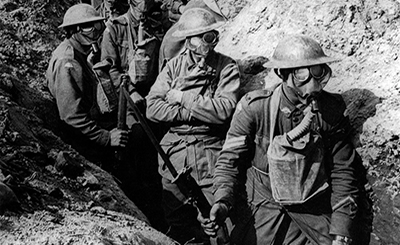
The buzz in the hut subdued as I entered through the back door, accompanied by my mother. As per the customs, I was draped in a yellow silk saree with a red border, styled in a modern way. Amma had worn her red cotton the traditional way with several folds around the hip before the six yards of faded cloth branches out into the pallu. I was decked like the old Vikki tree in the scared grove before the monsoon poojas; though not adored and revered as Her.
A bunch of people were seated on the thick cotton mats spread on the floor. They had come from across the four thicket hills they claim, their faces were devoid of the lushness that sprawled across the endless canopies in our vicinity. The normally silent and peaceful evergreen jungle outdoors resonated with the wild sounds of apprehension.
I could count six from the corner of my eye, their eyes carefully dancing around like a swarm of wild wasps. There was a moment of silence, the one that we practised in our village school to condole a death in our midst.
‘So what do you all think?’ My boisterous aunt was the first one to breach the silence. Her round frame, which I resentfully inherited, does not tolerate beating around the bushes. My younger cousin, Nila, in her teens, promptly escorts me indoors before the gunning begins. My family never understood that my rich black skin is immune to all the words of fire.
In these five years since my puberty, the metaphors that have been used to describe me include wild boar, crazy wisent, languid sloth bear, the list is endless. Any strange sighting in the wild is frequently compared to my looks. Appa has laid a geographical curfew; I do not cross the confines of our village unnecessarily.
My ordeals started the day I came home bleeding from school, my yellow pavadai wet and reeking of a strange smell. Since that day I have given up certain granted pleasures in my life. Sitting on the floor in the class and solving a numerical problem on the slate before everyone else around me was the prime one. Another being severing all kinds of social contacts with Ranga, the only benevolent pair of eyes amid stares and malevolent banter.
That moment is still green, like the trees in the sacred grove that stayed fresh even in heavy frost. As I sat on the string cot listening to Nila’s babbles, my neighbour barged in. ‘They said yes, but are willing to pay us only half the bride’s sum,’ she spoke in a pitch that silenced the cawing of hungry crows outdoors. And so the stolid stage was set for me a girl belonging to the ancestry of honey gatherers, an honourable sub-clan of the tribe to wed the son of a sorcerer, an inferior sub-clan.
The Widespread Slander
The days leading up to the travesty they termed wedding scorched my gut so much so that I carried the ashes within me at all times. Appa had a relieved look, thanks to my dispersal which may or may not lead to fruition. Amma’s gleaming face mirrored apprehension when she was not busy sourcing bundles of turmeric to lighten my skin or grinding a concoction of leaves to aid my conception abilities.
The early western winds bought in tales of my to-be groom’s antics:
‘He stayed awake all night indulging in those sacred night poojas’
‘He has an imp with him that listens to his commands. So, you will be living with two men; alone.’
‘He has neglected farmland. It is upon you to revive it.’
‘There is a raw stench surrounding his house, and dark smoke emanates from his chimney all night long.’
‘Opposition of any kind within the household will lead to you bleeding to death or worse, with distorted limbs.’
On random nights the noise turned to clamour in my head causing compelled night walks in the company of bats.
Across the sprawling jungles, the collective cries of wilderness reverberated contending tales:
‘How does his livelihood matter? He is a respected man.’
‘The smoke is only from his furnace. He sleeps soundly through the night without extinguishing the fire.’
‘He gives that impression of an expert at witchcraft to scare the creditors away. They do not trouble him for the dues.’
‘They are protectors of the mountains. They are respected within the jungles.’
Within the recesses of my soul, I knew I did not want to raise an offspring as a sorcerer if the Gods of the forests were kind enough to let me have one.
The Route to Freedom
I had accustomed my mind to living in the heirless home of mine. Declining the ‘kind offer’ now would mean tainting the family’s reputation that might even lead to ostracisation in the village. This close-knit community of mine believed in the power of the given word.
‘A man’s sole reputation depends on him standing by his word,’ this was amongst grandmother’s many precious sayings. I know destiny would have been kinder if she were here with me today. I spent the rest of the days leading to the wedding waiting for that promising stroke of fate.
Like a harbinger from my grandma’s world, in a few days, the jubilant sound of bamboo bugle echoed across our settlement. The music can either be a call of distress or just an announcement. The call meant we assemble by the Red Sandal tree near the temple of the Fire God.
The entire village of 80-odd people gathered, and the Head escorted three men, dressed like townsmen, in pants and boots, their shirts wet from the harrowing ascend followed by the tricky descend. Most outsiders are not used to the walk in the rough eight-kilometre undulating stretch, and they are drained when they reach our hamlet.
They began their announcement in the town language which men in our community are familiar with. For us women who are not supposed to trail into the town, it was translated.
‘We need young women for employment in our textile mill. We will train you in machine sewing and embroidery. You will be given accommodation, food and paid for your labour.’ As the murmur grew and the questions flew from all corners, Nila pulled me aside.
‘We have to try. Let’s give our names, Kumbli,’ she said squeezing my wrist.
‘Are you mad? I am getting married in six months.’ I was nervous then.
‘We still have six months,’ the excitement in her voice was contagious.
‘My parents will have us both murdered.’ I tried to warn.
‘You can give it a try and come back in four months in time for your wedding.’ She concluded.
At that moment a query arose about the tenure, and one of the three men responded that we were free to come back when we wanted.
‘Look. You can even come back in three months! What will you do here for the next six months? Now that you have been promised to another clan, you can’t even head to the jungle like before,’ Nila had a point.
‘But, Appa?’
‘Leave it to me,’ she assured, her voice rich in confidence. ‘For now, we give our names. We will get to convincing Appa later.’
So we waited for the crowd to disperse and found an opportune moment to approach the men. We depended on 15-year-old Munni for translation.
As we registered, the bald man amongst them turned to me and said something.
‘Can you sew?’ translates Munni.
‘No’
‘What can you do?’ Munni asked again.
‘I can gather honey.’
There was laughter, and they commented about something in another strange language. It was followed by a burst of ridiculing laughter that was as loud as the thunders that accompanied the summer showers. I looked at Munni helplessly, and he shut his eye for a brief moment in reassurance.
In my world, word spread quicker than the most destructive wildfires. As Nila and I approached home, we were greeted with aluminium pots that threatened to hit us but fell at our feet instead. Strangely, it was Amma consumed by rage and Appa was calm taking a break from his fieldwork with porridge in a bronze bowl.
‘Pedamma..’ Nila began, but her mouth was forced shut by my mother’s enraged stare.
‘Appa…’ as I tried to explain, he shoved the bowl full of millet porridge at my feet and left the hut. The sticky grains of little millet, cooked to perfection fought to stay afloat on the rich laterite.
After a week of never-ending sobs from two different pairs of eyes and Nila’s coaxing, Amma finally gave in for a three month period. Word was sent across to my fiancée’s village through my uncle. Appa was too ashamed to be a part of this stage show.
‘Just for three months,’ came a reply from an unknown man with whom destiny tied me with, whose invisible face I now believe has a kind lustre.
After that day I have never looked at Appa in the eye.
The Journey to the Sleepy Land
At the day of the departure, Appa was nowhere to be seen. I bowed to his imaginary feet at the doorway as I left with my belongings bundled in my arms. We were escorted in a covered jeep that could carry eight of us, and we sat facing each other. The six of us from the village were accompanied by a woman who gave orders and another town woman Mathangi, who translated it for us. The translator did not belong to our community, but she spoke like she was one amongst us. As we crossed the bylanes of the forest I knew well, the canopies once gigantic and amusing looked small and shallow from the moving vehicle. The echo of Amma’s sobs threatened my ears until we reached the foothills.
After a two hour ride, we were taken to a deserted ground with sparse trees of a strange family with a concrete room in an end. The dimly lit room served as our temporary accommodation. We were served idli, dosai and other kinds of strange food. I have heard those names from many of Ranga’s adventures. Consuming the bitter drink for which Mathangi did not have a name was tormenting. She said that it was a common beverage outside the boundaries of our forests.
The foreign food did not suit some of us, and we had to go often to the banks of the stream that was around 700 metres away to relieve ourselves. Apart from those walks, we were in deep slumber through the day and nights. It could have been the food, the drink or the heat. Nila was curled up close to me at all times. I sought companionship in her somniloquy those three days. One morning, I woke up to the distressed song of the koel to see the room filled with more women.
The same night we were made to change and wash in the stream. We were then split into three groups. Nila was in a different one. Mathangi informed that the groups were for various vocations and we will be posted in different complexes neighbouring each other in an industrial town. As we part our hands, ‘Akka’ Nila said for the first time since our childhood as her hyperactive tear glands ran amuck.
We left the lone house in small buses, and I rode in the smallest of them accompanied by Mathangi and two dark women; the disparity between us apparent despite similar skin tones. As we made our way to a wide road, a pack of wild dogs from the adjoining woods watched in disbelief, their gaze revealed mercy.
The Ceaseless Languor
I remember walking into a dingy room separated by wooden panels, each cubicle holding a steel cot and rocky mattress. Mathangi sends food and the bitter decoction promptly.
Like the hibernating fireflies at the woods I call home, I am buried here, deep beneath the ground where there is no trace of light. Like those creatures, I lie here motionless with partially inert senses. The images flash by like a dreadful reverie. Men arrive with deep-throated voices, on rare occasions low-pitched, but almost always redolent of alcohol, sometimes the stench so strong that it rattles my gut. These men with no faces, short and tall, skinny and bulky; over me, beside me leave behind their taste, odour and dampness. The dreadful pain between my legs consumes my entire body, gradually.
As night and day turn into a mere delusion, like a tale set in an occult land, I lie dreaming of the screech of cricket that populated my home in a faraway land. With my insides bruised and skin abraded, I dream of large puffs of joyful smoke emanating from a lone hut deep in a strange forest. Grandma’s lullaby pacifies like the first gush of heavy northern winds.
More from The Byword
Comments
*Comments will be moderated











